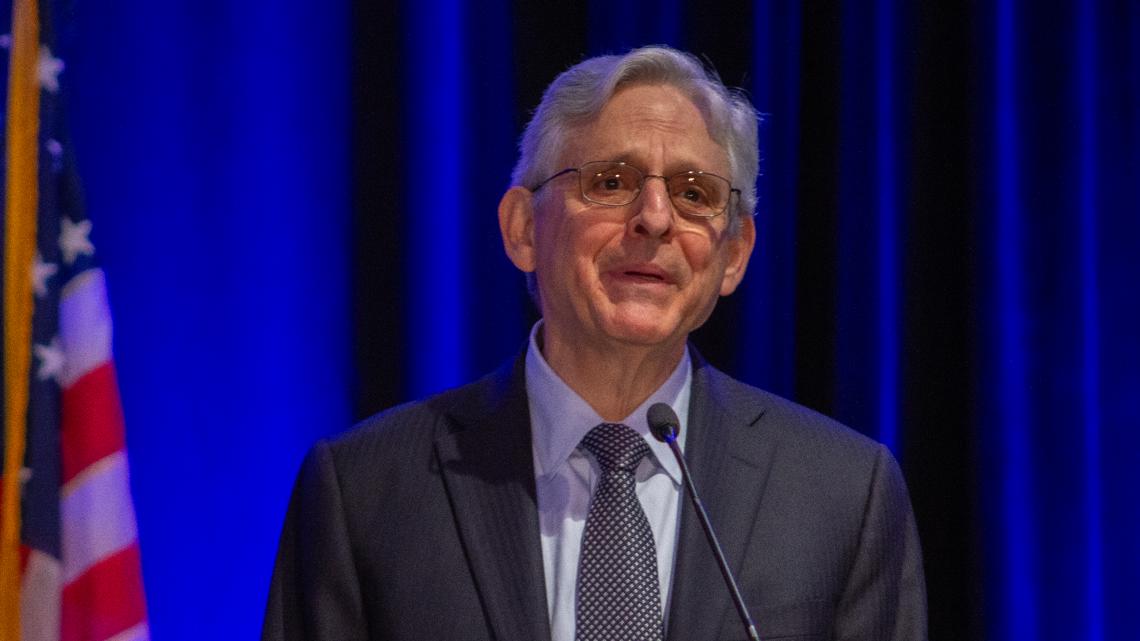In Chicago visit, Attorney General Garland announces $78M anti-violence initiative
Department of Justice officials visited an annual community violence intervention and prevention conference. Attorney General Garland announced a $78M anti-violence initiative in Chicago, with the Department of Justice visiting an annual community violence intervention and prevention conference. The application window has opened for the funding, which will be distributed across the country in fiscal year 2024. For fiscal year 2023, the Office of Justice Programs will distribute over $15 million for community violence prevention and intervention programming to the Illinois Criminal Justice Information Authority, community-based organizations, nonprofits, and universities in the state. Garland praised frontline workers such as outreach staff who connect people to community violence interventions. The Bureau of Alcohol, Tobacco, Firearms and Explosives is set to publish its third volume of the National Firearms Commerce and Trafficking Assessment, which he called the most comprehensive look at America's crime gun data in over two decades.

Published : a month ago by Capitol News Illinois in Politics
Department of Justice officials visited an annual community violence intervention and prevention conference.
“We have made historic investments in evidence-based, community-centered initiatives aimed at preventing and disrupting violence. In the last two years alone, we have delivered nearly $200 million to support life-saving programs,” he said.
Garland announced Wednesday that the application window had opened for the $78 million that will be distributed across the country in fiscal year 2024. For fiscal year 2023, the Office of Justice Programs – a federal agency of the U.S. Department of Justice – dispersed more than $15 million for community violence prevention and intervention programming to the Illinois Criminal Justice Information Authority, community-based organizations, nonprofits and universities in the state.
“Today, I want to do something that I wish I could do more often. That is, to focus on some good news,” Garland said. “Thanks in part to the hard work of the people in this room, and so many others outside it, we are starting to see meaningful results in the effort to reduce violent crime.”
“The FBI reports that last year we saw significant decrease in overall violent crime across the country compared to the previous year, including an over 13 percent decline in homicides,” he said.
Garland was joined by Eddie Bocanegra, DOJ community violence intervention senior advisor and former director of violence prevention program READI Chicago. READI, which stands for Rapid Employment and Development Initiative, looks to decrease violent crime by enrolling at-risk individuals in career readiness courses and cognitive behavior therapy and providing stipends.
He praised frontline workers such as outreach staff who connect people to community violence intervention programs as the “muscle” of community violence intervention. These workers often don’t have formal degrees in social work or behavioral therapy, but life experience with gun violence that is crucial to engaging participants, Bocanegra said.
He didn’t mention it in his speech, but a study published last fall by the University of Chicago Crime Lab found outreach workers were able to reduce the expected number of shooting victims and associated arrests.
The study makes a point to stop short of naming READI a difference maker in overall violent crime for the city, stating, “We cannot conclude with certainty that the version of READI evaluated here decreased serious violence.”
“Our goal here is to make sure that federal support is reaching the communities that are too often overlooked and underfunded – the same communities where violence takes the heaviest toll,” she said. “It's about reaching the organizations that reflect those communities, are designed to serve them, are located within them and are closest to the problems that we seek to solve.”
Garland also announced the Bureau of Alcohol, Tobacco, Firearms and Explosives will soon be publishing its third volume of the National Firearms Commerce and Trafficking Assessment, which Garland called “the most comprehensive look at America’s crime gun data in over two decades.”
